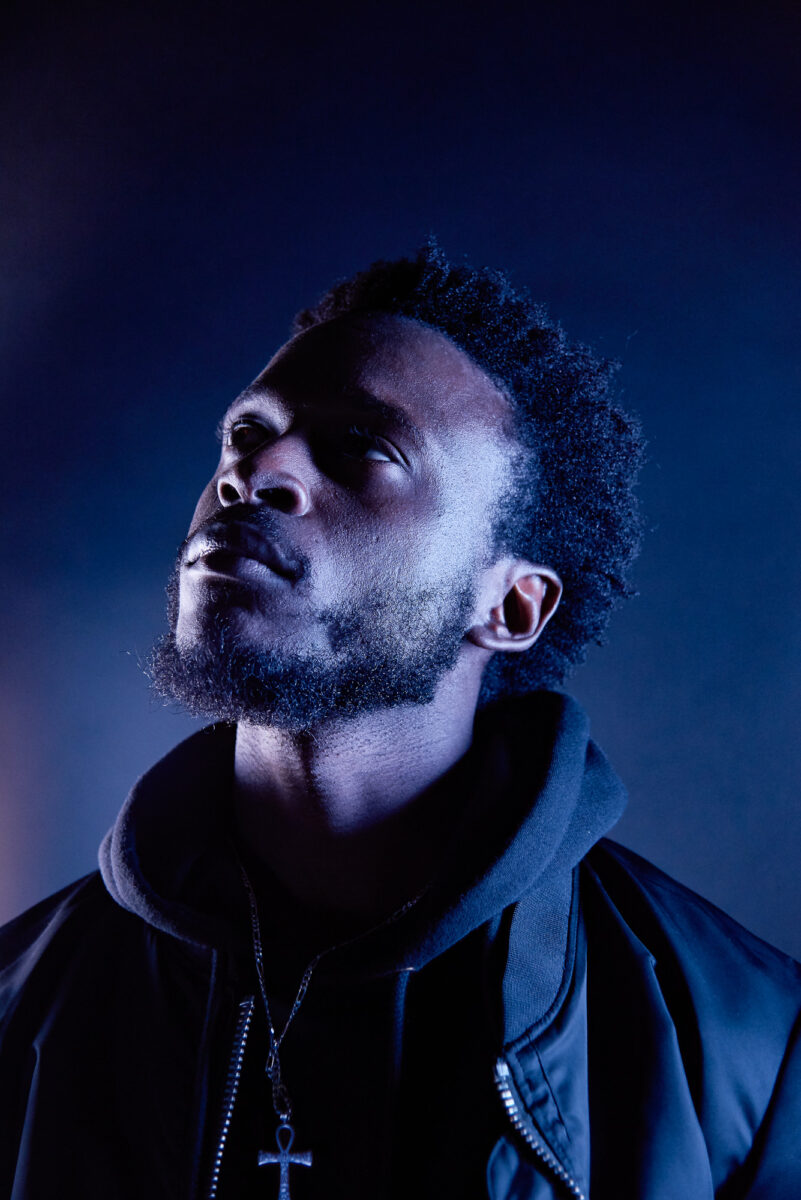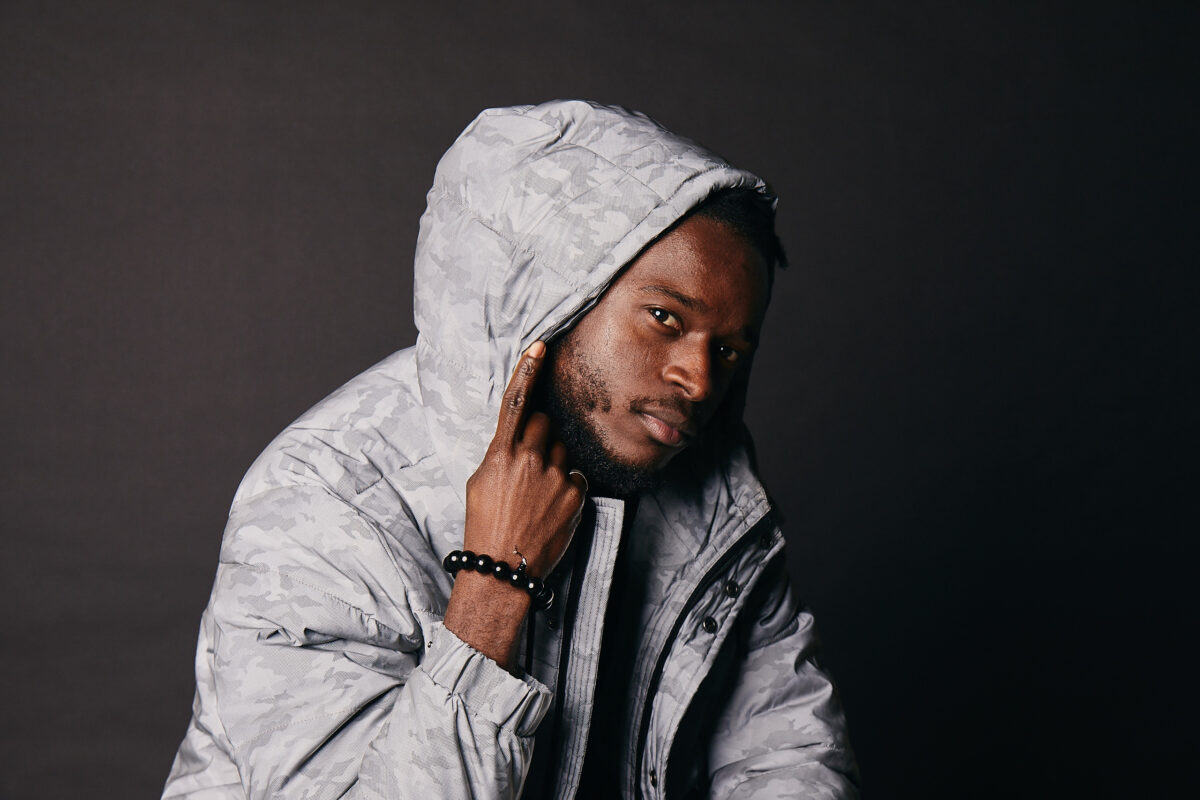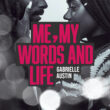In this world, there are the people who colour within the lines, the people who draw outside of the lines and then there are people like Borelson. The kind who instead opts to flip the page over and make an all-new creation. From the multi-genre fusions in his music to his spirituality-influenced wordplay, it’s clear that Borelson is here to carve out a path that’s uniquely his own.
When he joins Urbanology on Zoom, his head appears to be superimposed between two mountains that stand just behind a small body of water and a sprawling stretch of land.
“I try to find myself a peaceful place. I think it can just help to feel more relaxed and chill,” Borelson says.
It’s advice worth taking when you consider how Zen Borelson remains throughout his interview. This may also have to do with him being a Reiki master and the fact that he’s intentional about fusing spirituality into his art, even recording his songs at the 432Hz frequency known for uplifting one’s energy. Still, while the Toronto-based artist may appear chill, make no mistake there’s nothing laidback about his determination.
In the past three years, the multi-lingual Borelson performed at several shows including SXSW, Nuit Blanche, Afrofest and Afrochic Ghana. At the start of 2020, he directed and wrote a docuseries in partnership with Artscape Daniels Launchpad. The doc, called “ThisFAR” features success stories from locals who are either immigrants or first-generation Canadians.
Music and spirituality are actually the key components or elements in my life. I would say that [music] really helped me to feel balanced and keep my balance.
In May 2020, he released his Afrofuturistic debut album, As Far As Eye Can See which features many collaborations with local artists and producers such as Junia-T, Nate Smith, Ric Notes and Truss. Fast forward to 2021, Borelson released his single “Black Is” featuring Chantal Rose in honour of Black History Month and began a film scoring mentorship at the Canadian Film Centre.
For the musically adventurous, Borelson’s music comes as a refreshing outlier. Blurring the lines of genre, his sound borrows elements from hip-hop, classical music, spoken word and afro beats. Urbanology caught up with Borelson to learn more about how he got his start, unique sound, and his plans for the future.
At what point did your love of music go from a hobby to something where you said, ‘I’m going to pursue this seriously?’
I think it was in high school, maybe Grade 11 with some friends. We used to learn lyrics of songs that were popular on TV, on the radio and even [did] some talent shows and things like that and then, you know, just joking sometimes, we’d all go that would be cool if you actually made a career out of being an artist … Some of them just saw it as a joke, but me, back then I was like, you know what? I think I want to try to see if I can really make it happen … Then it was really in 2012 that I decided to be like, OK, I’m gonna take [music] really serious and then try to really push it further and see how far I can go.
Do you feel like what you learned from your musical education helped to contribute to the sound that you have now?
Absolutely. … The fact that I’ve been in contact with so much knowledge and so many different genres and trying different approaches to music [has] definitely [played] a huge role in anything that I’m doing creatively and even beyond that … I’m someone who’s really curious about music … I don’t talk about it that much but something that I do music-wise is that I’m also into film scoring … Sometimes that can be reflected in my music as a solo artist where some of my music might have a sort of cinematic approach or cinematic vibe.

I noticed on your resume that it said that you’re a Reiki healer. Also, many of your songs can kind of double as affirmations and you mentioned that you wanted to release your project on Ascension Day. How important is it for you to infuse spirituality into your music?
Music and spirituality are actually the key components or elements in my life. I would say that [music] really helped me to feel balanced and keep my balance. So that’s why naturally I decided to mix those two elements in anything that I do. I think it’s that idea that this is what helped me feel good, feel great and always remain optimistic. Then I will try to see if I can also share that vibe with anyone and then hopefully that can touch at least one person.
What would you say has been the biggest obstacle that you’ve had to overcome in your journey so far?
I think it’s making people understand not only my journey, [but] most importantly my vision. I think it’s just that sometimes, for instance, because of your journey and your background some people might try to put you in some specific box. Also sometimes your vision, people might not get it or might feel that it’s I don’t know, too big for whatever reason … I feel like also maybe the world needed to evolve to a certain level … I feel like because right now the fact that the world is being more open thanks to the internet, we see more connection between cultures and people and less boundaries and all of that. I think the perfect timing is right now. I feel there’s momentum and hopefully, I will have way more people understanding what I’m doing and what I’ve been doing for a while.
Looking forward to the near future, what are you hoping to accomplish as a multidisciplinary artist?
This year I’m planning on working on a new project. I’ve been lucky to receive music grants this year so I’m going to create more music for sure and the idea is to really build bridges between cultures, between people, between genres and all of that … I also plan to work on a documentary, it’s not confirmed yet, but this year I want to work on a documentary about COVID and the impact it’s had on people but some very specific categories of people and also the way our relationship to technology changed. So that’s a documentary that I really want to work on this year and if that happens I would also be in charge of scoring the whole documentary. So these are the two main projects that I’m working on right now … I feel definitely more excited because now I have more confidence. I’ve learned lessons from last year and having also a distribution deal and more visibility overall. I feel like this year can be an amazing one even if we’re still in the pandemic.
Photo supplied by Borelson
This article was presented by CBC’s The Block. Hosted by Angeline Tetteh-Wayoe, The Block is about culture and community – repping the elements of hip-hop from its roots to its far-reaching influence. Listen now.




Comments are closed.